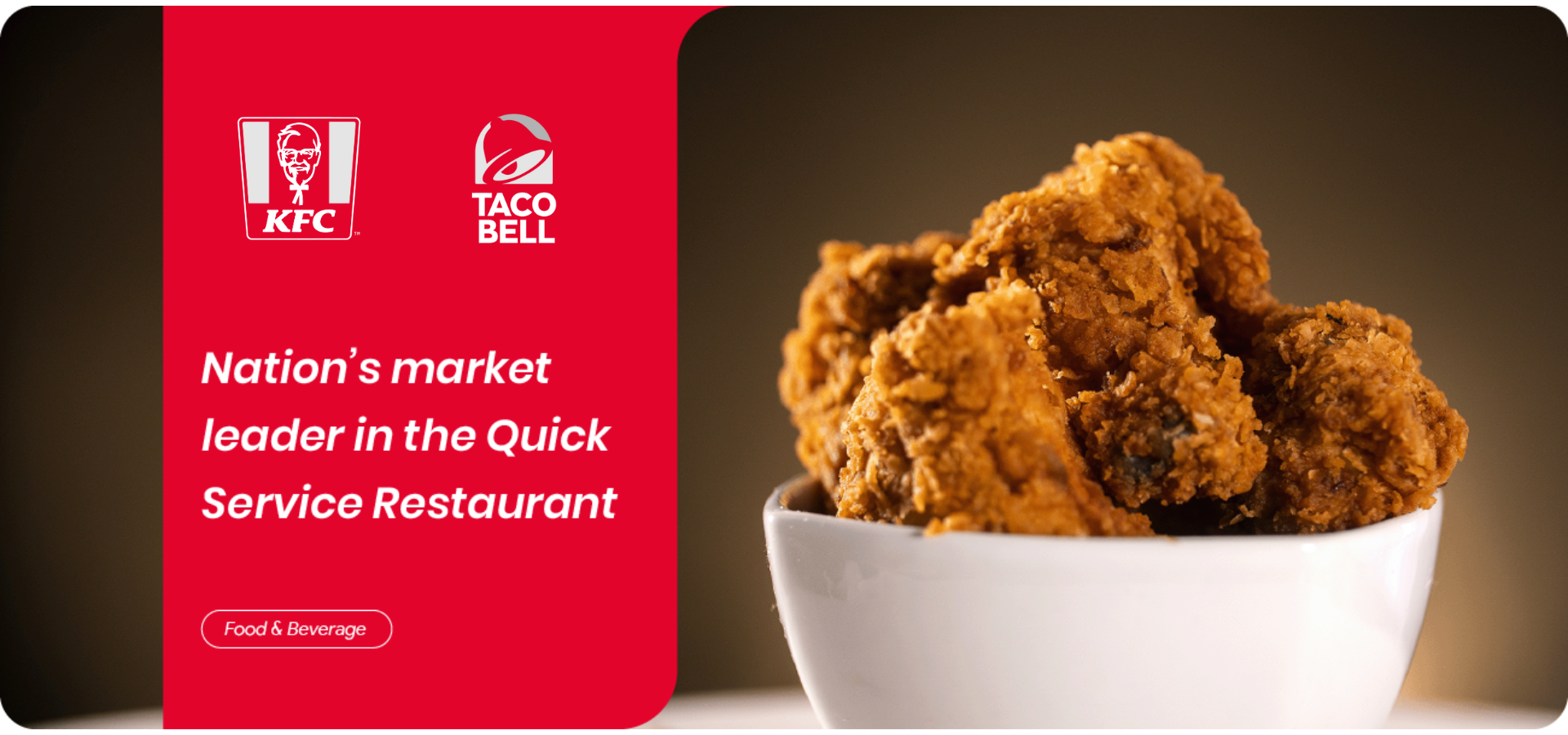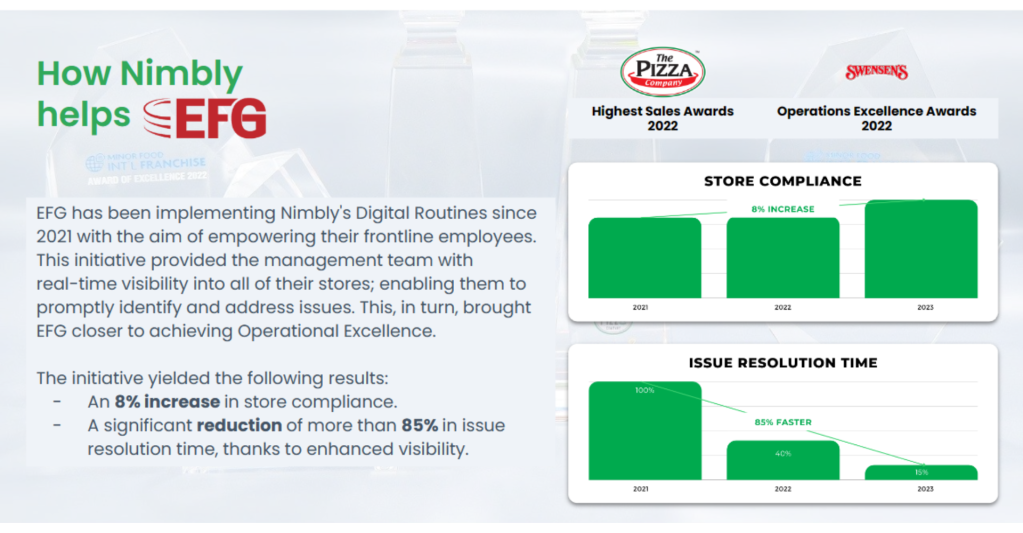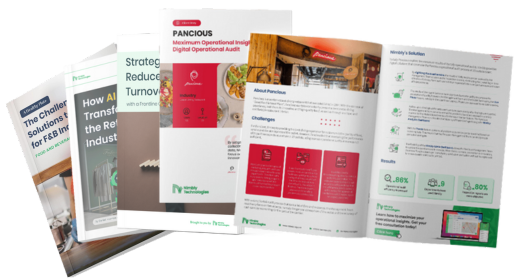

Today’s technology presents businesses with great opportunities to envision and build innovative new products, services, and experiences that are tailored to evolving customer demands. Outdated operating models can hinder a company’s transformation initiatives, impeding the ability to keep pace with market demands.
This can happen because of the nature of technology that will continue to grow. so as not to be left behind with customers who will be more advanced, your competitors will also continue to grow, especially in the digital world and you will face difficult circumstances if you do not keep up with the times.

Digital operations are a range of activities intended to manage, regulate, and organize every aspect of operations in the organization, but digitally or online. The goal is simple, to keep the organization running smoothly, and productively.
By transforming most of the operational processes into digital, organizations will be able to achieve efficient and effective production. Activities will become more transparent and under control, as you’re able to see more things at once from your screen. By transforming into the digital world, organizations like yours will be able to collect and recall everything about their operations with ease.
Baca juga: 4 Key Outcomes of Digitalization
Organizations that transformed most of their operational processes digitally will have the ability to reduce operating costs, improve user experiences, deliver better outcomes and drive top-line growth. By leveraging automated, data-driven platforms, businesses like yours can continuously develop more effective operating models and achieve operational excellence; ultimately delivering performance and delighting customers.
Nimbly’s products are centered around resolving challenges that F&B and Retail businesses face on a daily basis. Our products simplify day-to-day tasks for frontliners, and provide management teams with real-time visibility all the way down to the store, shop floor, or plantation level. We’ve helped numerous businesses switch from manual methods of operations to digital in the span of 5 years.
In the world of business, real-life examples often provide the best insights into the power of digital operations. One such exemplary case is that of Amazon, a company that has reshaped the way we shop, emphasizing the crucial role digital operations play in modern business success.
Amazon's success as an e-commerce giant can be largely attributed to its pioneering efforts in digital operations. The company leverages advanced technology to optimize every aspect of its operations, from warehousing to customer service. Here's how Amazon has made digital operations a cornerstone of its business strategy:
1. Efficient Warehousing:
Amazon's warehouses are powered by robots that move products from shelves to packing stations. This automation not only speeds up order fulfillment but also reduces operational costs.
2. Personalized Recommendations:
Amazon uses complex algorithms to analyze customer behavior and offer personalized product recommendations. This not only enhances the user experience but also drives sales.
3. Streamlined Logistics:
They use advanced logistics software to optimize the delivery process, ensuring that products reach customers quickly.
4. Data-Driven Decision-Making:
Amazon collects a large amount of data and uses it for decision-making, inventory management, and predicting customer demands. This data-driven approach minimizes waste and maximizes profits.
5. Customer Support:
Amazon's digital operations extend to customer support, with chatbots and automated systems handling routine queries, leaving human representatives to handle more complex issues.
By embracing digital operations, Amazon has not only transformed the way people shop but has also set a high standard for other businesses looking to thrive in the digital age. The company's relentless focus on efficiency, cost-effectiveness, and customer satisfaction demonstrates how powerful digital operations can be in shaping a business's success.
Meanwhile, in the F&B industry, KFC Indonesia has harnessed digital operations to optimize their operations and provide an outstanding dining experience. Here's how KFC Indonesia has leveraged digital innovations:
KFC Indonesia has streamlined its supply chain operations using digital tools, ensuring that ingredients arrive at their restaurants promptly. This minimizes delays and prevents stockouts, reducing food wastage.
KFC Indonesia introduced a user-friendly mobile app and an online ordering platform, allowing customers to conveniently place their orders. This digital integration has made order processing more efficient, reducing waiting times and elevating the customer experience.
In the food industry, quality control is a critical aspect to look out for. KFC Indonesia uses digital operations to maintain the quality of their food products. This includes temperature control, cooking times, and adherence to specific standards, ensuring that every meal meets KFC's high-quality standards.
KFC Indonesia has employed innovative tools to ensure operational excellence at the restaurant level. These tools enable real-time task management, daily routines, maintenance schedules, and compliance with operational standards. This transparency and accountability ensure that every KFC restaurant delivers top-quality food and service.
KFC Indonesia employs digital marketing and customer engagement strategies, such as personalized offers and loyalty programs, to enhance the customer experience and drive repeat business.
Through the integration of digital operations, KFC Indonesia has achieved remarkable results. The combination of efficient supply chain management, enhanced order processing, quality control, and an emphasis on operational excellence at the restaurant level has allowed KFC Indonesia to maintain its position as a customer favorite in the highly competitive fast-food industry.

One such example of a retail giant harnessing the power of digital operations is Walmart. Let's explore how Walmart has embraced digital operations to enhance customer experiences and streamline its operations:
Walmart utilizes advanced inventory management systems that rely on data analytics and real-time tracking. This ensures that products are in stock when customers need them, reducing instances of stockouts and overstocking.
Walmart has developed a digital supply chain network that allows for the efficient movement of products from suppliers to stores. This digital infrastructure minimizes delays and maximizes the freshness of products, especially in the grocery segment.
Walmart invests heavily into its online shopping platform, offering customers a seamless experience. Whether customers choose curbside pickup or home delivery, digital operations make the entire process convenient and efficient.
Through digital operations, Walmart gathers data on customer preferences and purchasing behaviors. This data is used to provide personalized recommendations and tailor marketing efforts to individual customer segments.
Walmart uses digital technologies to optimize store layouts, employee scheduling, and inventory placement. This not only improves customer navigation but also reduces operational costs.
Walmart's innovative approach to digital operations exemplifies how the Retail industry can leverage technology to deliver exceptional customer service, reduce operational expenses, and remain competitive.

Digital operations are a pivotal force in the modern business landscape, offering a pathway to greater efficiency, cost savings, and improved customer experiences. Whether in the F&B or Retail industry, companies that embrace the goals and benefits of digital operations are better positioned to succeed in an ever-evolving market. As technology continues to advance, it is evident that businesses that adapt to this digital age will shape the future of their respective industries
In the rapidly evolving landscape of modern business, a Digital Operations Platform is a crucial and transformative tool. It serves as a comprehensive, integrated solution that empowers organizations to manage, automate, and optimize a wide array of operational processes using digital technology.
| Key Characteristics and Components | Use Cases | Benefits |
|---|---|---|
| Data Integration | Frontline Operations | More Efficient |
| Process Automation | Customer Service | More Transparent |
| Workflow Management | Financial Operations | Gain a competitive edge |
| Real-time Monitoring | Manufacturing and Production | Scalable |
| Analytics and Reporting | Retail and E-commerce | Improving Customer Experiences |
| Scalability | Supply Chain Management |
A Digital Operations Platform typically encompasses the following characteristics and components:
Digital Operations Platforms find application in various industries and operational domains:
The advantages of implementing a Digital Operations Platform include:
In summary, a Digital Operations Platform is a multifaceted tool that empowers businesses to optimize and streamline their operations in a data-driven, efficient, and scalable manner. It plays a critical role in achieving operational excellence and remaining competitive in today's dynamic business environment
In today's competitive landscape, businesses in the Retail and Food & beverage (F&B) industries are increasingly turning to digital operations strategies to stay relevant and thrive in an ever-changing market. A well-crafted digital operations strategy encompasses a range of initiatives aimed at enhancing efficiency, reducing costs, and delivering exceptional customer experiences. Here's an outline of the key elements of a successful digital operations strategy for Retail and F&B:
| 1. Seamless Omnichannel Experience 2. Inventory Optimization 3. Contactless and Mobile Ordering 4. Data-Driven Decision-Making 5. Supply Chain Efficiency | 6. Operational Excellence 7. Customer Engagement 8. Cybersecurity and Data Privacy 9. Employee Training and Development 10. Continuous Improvement |
1. Seamless Omnichannel Experience:
2. Inventory Optimization:
3. Contactless and Mobile Ordering:
4. Data-Driven Decision-Making:
5. Supply Chain Efficiency:
6. Operational Excellence:
Implement frontline operations management software to ensure tasks are executed with precision and compliance with operational standards.

Click here to learn more.
7. Customer Engagement:
8. Cybersecurity and Data Privacy:
9. Employee Training and Development:
10. Continuous Improvement:
In conclusion, a well-executed digital operations strategy is essential for businesses in the Retail and F&B sectors to adapt to the evolving market, provide exceptional customer experiences, and maintain operational efficiency. By embracing digital tools and data-driven decision-making, these industries can position themselves for long-term success in a dynamic business environment
